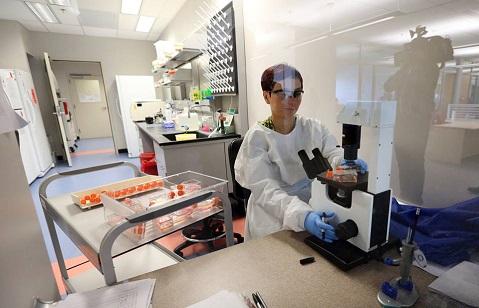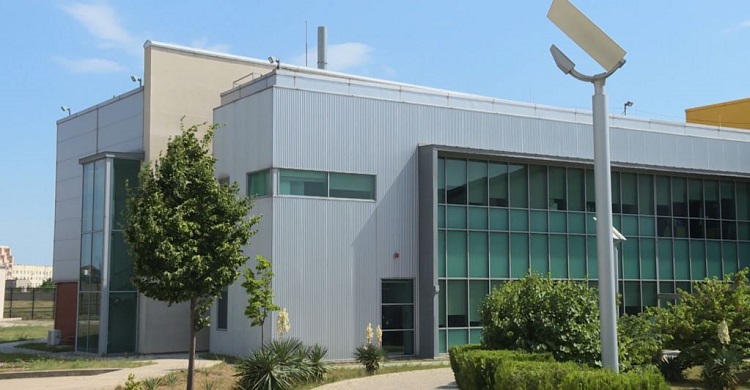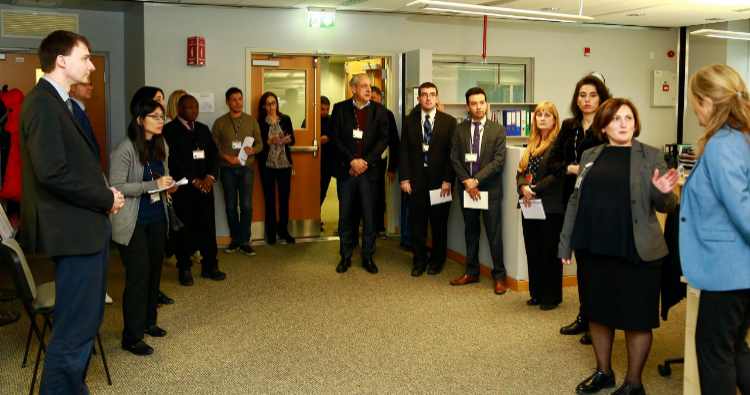PM: Georgia’s cutting-edge research centre has immense potential

Georgia plays an important role in disease detection and the recent establishment of a state of the art biolab in Georgia will only aid this, said Georgia’s Prime Minister while visiting the Richard Lugar National Centre for Disease Control and Public Health today.
Accompanied by US Ambassador to Georgia Richard Norland, Georgian leader Irakli Garibashvili stressed the regional importance of the laboratory and noted this project was one of the largest investments of the US Government in Georgia.
"In 2013 the laboratory was handed to Georgian Government and it reached its full operational capacity the same year. This allowed us to not only be successfully engaged in the supervision of epidemics, but it also created the opportunity to become a regional center for scientific research,” Garibashvili said.
The US Government contributed $350 million dollars directly to the project, which was described as a unique and modern research laboratory.
"Originally the American Government allocated $170 million USD (298 million GEL) for creating this centre but in total the US Government spent $350 USD (613 million GEL) on it, including training local staff,” he said.
The centre reportedly offered the opportunity to conduct serious scientific research – a first for the region – and its main aim was to fight dangerous human and animal infections, monitor public health and animal health issues and diagnose and take appropriate measures.
"Students, researchers and scientists will be able to visit this centre and not only from Georgia but from the whole region as well. The laboratory is absolutely open and transparent and ready to serve and we open the door to foreign scholars and scientists,” the PM noted.
In the future, construction of a campus on the research centre’s territory was also planned, Garibashvili added.
"The construction works will likely begin next year and will end in 2016. After this, it will be a flawless complex,” he said.
 Tweet
Tweet  Share
Share



